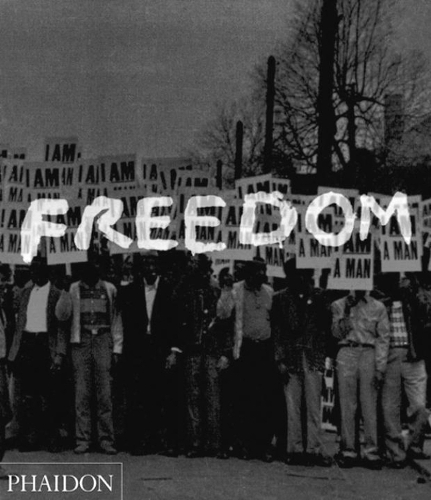
Freedom: A Photographic History of the African American Struggle
(Hardback)
Publishing Details
Freedom: A Photographic History of the African American Struggle
By (Author) Manning Marable and Leith Mullings
Other Sophie Spencer-Wood
Phaidon Press Ltd
Phaidon Press Ltd
10th October 2002
United Kingdom
Classifications
General
Non Fiction
779.93231196073
Physical Properties
Hardback
512
Width 250mm, Height 290mm
3560g
Description
In the famous Brown v Board of Education of Topeka case of 1954, the United States Supreme Court ruled that segregated schools violated the equal protection of the laws guaranteed by the Fourteenth Amendment of the Constitution. This decision marked a critical turning point in the American judicial system, which, since the Jim Crow Laws of the 1880s, had previously upheld the practice of segregation. The outcome of the Supreme Court case encouraged a growing challenge to segregation on all levels, thus creating a momentum that would, within a decade, lead to the Civil Rights and Voting Acts that definitively guaranteed African Americans equal protection under the law. The Civil Rights Movement itself, from 1954 to 1968, marked a climactic era in the struggle for political equal rights for African Americans. After World War II, the economic boom and America's advocacy of individual self-determination on the international scene made segregation in the United States more obsolete and even more unjustifiable. Through a combination of charismatic leadership and grass-root support, the period saw the revocation of the segregationist laws that had pervaded American society for two hundred years. However, this famous era marks neither the beginning nor the end of the African-American fight for equality, and this book tells, through photographs, the story of the struggle in its widest scope for the first time. From the bonds of slavery to Civil Rights, from the Deep South to the northern metropolis, from the Harlem Renaissance to the riots in South Central LA, this book reveals the African-American struggle for equality from the first photographic records in the 19th century all the way to the present. The photographs reveal the journey in all its complexity and nuance. They cover the struggle in its many different aspects: political, social, economic, and cultural, showing the incredible courage and determination of people fighting for a common goal, as well as the internal conflicts and contradictions. It is a story that has sometimes been in the front lights, but more often in the shadows, and which has changed American society and touched the lives of millions. The selection of photographs presents milestone events, such as the Montgomery Bus Boycott and the assassination of Martin Luther King, Jr, through famous as well as rarely-seen images; it shows iconic figures such as W.E.B. Du Bois and Malcolm X in an unusual light; but it also includes a wide range of images of the everyday struggle and lives of the people, from the rural Deep South to the urban agglomerations of Chicago and Detroit, and to the very heart of modern African-American culture, Harlem. Renowned experts on the subject of African-American history Manning Marable and Leith Mullings give this book and its still highly controversial subject matter thoughtful scholarship and authority.
Reviews
'an extraordinary photography history - an admirably concise account by - Manning Marable and Leith Mullings ... it is the book's 550 photographs that give the story its point and meaning. - taken as a whole, these are images that retain an astonishing power. ' Mike Phillips, The Independent, 20 October 2002 'Dramatic. Arresting. Haunting.' The Herald, 19 October 2002 'A shocking compendium of both triumphant and desperately tragic images - Thoughtful and authoritative, this chronicle of determination and courage instantly absorbs the reader through the sheer wealth of fact and the beautiful reproduction of the prints. An important, compelling documentary.' Creative Review, December 2002 'fascinating' Daily Mail, 20 December 2002 'an enormous, engrossing, disturbing, and superbly produced book.' Church Times, 17 January 2003 'will enthral anyone interested in civil liberty, social anthropology, the politics of inequality or race relations.' Amateur Photographer, 15 February 2003
Author Bio
Dr. Manning Marable is a prominent lecturer and interpreter of the politics and history of race in America. He is the Founding Director of the Institute for Research in African-American Studies at Columbia University in New York City, and is the author of more than fifteen books on the subject, including the highly acclaimed Black Leadership (1998), and co-edited with Leith Mullings a groundbreaking anthology of African-American texts, Let Nobody Turn Us Around (2000); in 1994 Marable initiated Souls: A Critical Journal of Black Politics, Culture and Society, a quarterly journal that examines key theoretical issues within black America, Africa and the Caribbean, which is distributed throughout the U.S. and internationally. Leith Mullings is presidential professor of anthropology at the Graduate Center of the City University of New York, and is the author of many books with a special emphasis on the study of race, class, and gender in African-American communities.
